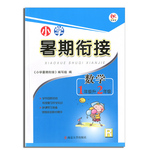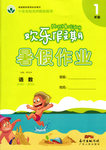题目内容
【题目】Directions: After reading the passage below, fill in the blanks to make the passage coherent and grammatically correct. For the blanks with a given word, fill in each blank with the proper form of the given word; for the other blanks, use one word that best fits each blank.
To have a fruitful discussion, teachers need to decide what seating arrangement is best for their own class and be prepared to experiment with different methods.【1】 method is adopted, it should help and be productive of dialogue between children as well as between teacher and child. Within the physical setting, children and teachers should agree 【2】 a discussion takes place.
Why are rules necessary for discussion? This may be a question to ask the children. If children are given freedom to talk, why are there rules that will restrict that freedom? The golden rule is of course that one’s own freedom 【3】 not interfere with the freedom of others. Individuals within a democratic community have equal rights. A child who talks all the time 【4】(deny) the rights of others to be heard. Each person should be allowed an equal chance to speak and to put forward their own point of view and if we wish 【5】listen) to, then we should listen to others. There is no point giving a point of view 【6】 someone is listening.【7】 of us are capable of listening to more than one person at a time, so another basic rule should be: only one person to speak at a time. Listening implies not only hearing the words but paying attention to the meaning of 【8】 is being said. This is not a natural thing for children to do. School is typically a place where children learn to listen to the teacher but not to each other. The skills of listening need to be practiced. The ideal discussion,【9】 everyone listens to the speaker and then each is allowed to reply, is rare among adults, let alone children. It works 【10】 (well) when certain ground-rules for discussion are followed.
【答案】
【1】Whichever
【2】how
【3】should
【4】denies
【5】to be listened
【6】unless
【7】None
【8】what
【9】in which
【10】better
【解析】
本文为说明文。本文主要说明如何在课堂进行有效讨论的方法。一个富有成效的讨论,孩子和老师应该就如何进行讨论达成一致。讨论要遵循两个基本的原则,即一个人自己的自由不应妨碍他人的自由。民主社会中的个人享有平等权利,人人都有话语权。第二是每次只能听一个人讲话,要学会倾听,每个人都能回答问题。这样才会使讨论更有效。
【1】考查让步状语从句。句意:无论采用哪种方法,都应有助于儿童之间以及教师与儿童之间的对话,并使之富有成效。根据语境可知,此空格是修饰名词different methods。根据前句中有different methods,本句是指上文中提到的不同方法中的无论哪一种,有范围中的无论哪一种,应该用whichever,表示无论哪一种方法。故填Whichever。
【2】考查宾语从句。句意:在现实环境中,孩子和老师应该就讨论的方式达成一致。根据上下文可知,此处是指就讨论的方式达成一致,即 如何讨论达成一致,表方式,故填how。
【3】考查情态动词。句意:最好的原则当然是一个人自己的自由不应妨碍他人的自由。根据语境可知,此处表示一种建议,即应该如何做。should 表示提出建议,表示“应该,可以”。故填should。
【4】考查谓语动词。句意:一个总是说话的孩子会剥夺他人的发言权。分析句子可知,本句的主语是三人称单数a child,根据全文可知,此处要用一般现在时,即用denies,故填denies。
【5】考查动词不定式。句意:如果我们希望别人倾听,我们就应该倾听别人。“wish to do sth”为固定搭配,意为“希望做某事”。但是也要注意此处用动词不定式的被动,由语境可知,此处表示我们希望被倾听,表示方式。故填to be listened。
【6】考查条件状语从句。句意:除非有人在听,否则发表观点是没有意义的。分析句子结构可知,此处缺少连词。根据句意,表示除非有人倾听,否则发表意见也没有意义的。连词unless意为“除非”,故填unless。
【7】考查不定代词。句意:我们没有人能够同时听一个以上的人讲话,所以另一个黄金规则应该是:一次只能听一个人讲话。根据后面的“另一个黄金规则是一次只有一个人说话” ,可知没有人(none)能够一次同时倾听很多人讲话。故填None。
【8】考查宾语从句。句意:倾听意味着不仅要听单词,而且要注意所说内容的意思。分析句子结构,从句中缺少主语,名词从句中缺少主语一般用what,用what表示正在被说的事情。故填what。
【9】考查非限制性定语从句。句意:在理想的讨论中,每个人都听演讲者的讲话,允许每个人作出回应。分析句子可知,本句是非限制性定语从句。the ideal discussion是先行词,在定语从句中作状语, 即in the discussion,要用in which,故填in which。
【10】考查形容词比较级。句意:当遵守了某些基本的讨论规则时,讨论会更有效。根据语境可知,前后句暗含比较,主要强调后句的方法更好。故填better。

 学而优暑期衔接南京大学出版社系列答案
学而优暑期衔接南京大学出版社系列答案 Happy holiday欢乐假期暑假作业广东人民出版社系列答案
Happy holiday欢乐假期暑假作业广东人民出版社系列答案